Emeka was born to a family of entrepreneurs in Jos, Nigeria, where he lived with his parents and four siblings. Religious and ethnic tensions broke out in Jos, causing the family to move to the south eastern part of Enugu for Emeka’s secondary education. This is where Emeka decided to study electrical engineering, motivated by his parent’s constant struggle with patchy electricity provision during his adolescence. This lack of electrical power had a direct impact upon the family’s livelihood, and Emeka was determined to make a change.
After completing his studies at the University of Nigeria Secondary School, Emeka received the best Post-Unified Tertiary Matriculation Examination (Post-UTME) grade amongst all students applying to the Faculty of Engineering Sciences at the University of Nigeria. From there, Emeka emerged as the best graduating student, and in 2018 he moved on to clinch the Best Graduate Engineer Award in Nigeria.
During his final year at university, Emeka joined friends to co-found Greenage Technologies, an organisation that seeks to solve Nigeria’s deep-seated energy problems. Emeka noted that many product parts in the electricity space were being imported from other countries, such as China and Germany, resulting in high numbers of inverters being abandoned due to unfamiliar technology or language barriers. Identifing that this was not sustainable, the team started making inverters themselves, with the aim of moving into solar panel energy. By doing so, they planned to reduce the cost of renewable energy deployment by 30%.
Greenage managed to secure a research space at the National Energy Research Centre, where the team built a prototype and sold it to a mentor. He loved the product, after which they began to fine-tune their processes until their inverter was commercially viable.
Growth in the sector required the team to expand from selling only inverters to selling energy. They then began deploying energy products using their inverters to rural users, hospitals and schools, with positive feedback. Under Emeka, Greenage grew from $100 to $200,000 in revenue within two years. As news of their success spread, they secured funding rounds that valued the company at two million dollars. Most notably, they have secured partnerships with the United States Africa Development Fund (USADF), Tenece and All On. As a result of his work with Greenage, Emeka won the Keyman Award for Outstanding entrepreneurship displayed by indigenous energy innovations’ growth. Other awards and mentions include the USADF Off-Grid Energy Award and The Future Africa Award nomination for technology and innovation.
To date, Emeka is the only Rhodes scholar from west Africa to study an MSc in Energy Systems at the University of Oxford. He recently gained admission to the Said Business School for an MBA and was offered a DPhil placement to develop modular flexible green hydrogen/ammonia power plants that guarantee renewable penetration. He plans to use his knowledge to improve rural electricity access. Since starting at Oxford in 2020, Emeka, together with The Ganglion Initiative and the Enugu State Scholarship Board, has created the Coal City Fellowship. The Fellowship seeks to foster innovation amongst Nigerian youth by matching them with mentors from world-class educational institutions like Oxford and Cambridge. The team is also working with all universities in Enugu State. Along with this, the students receive support to engage in innovative and social-driven projects as part of their all-round development.
Emeka is also part of the team organising the next Oxford Africa Conference, themed ‘Rewriting Our Story & Asserting Africa’s Future’. With the conference, his team hopes to drive engagement with political, economic and innovative leaders in Africa to chart ways forward and build back better from the current economic challenges specifically aggravated by the Covid pandemic.
< >



